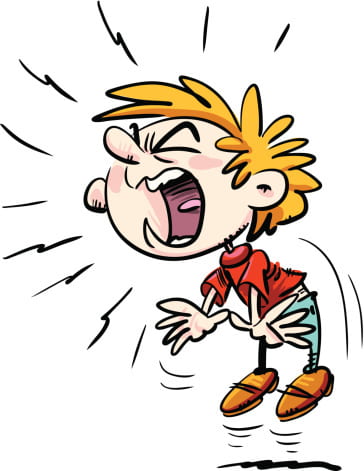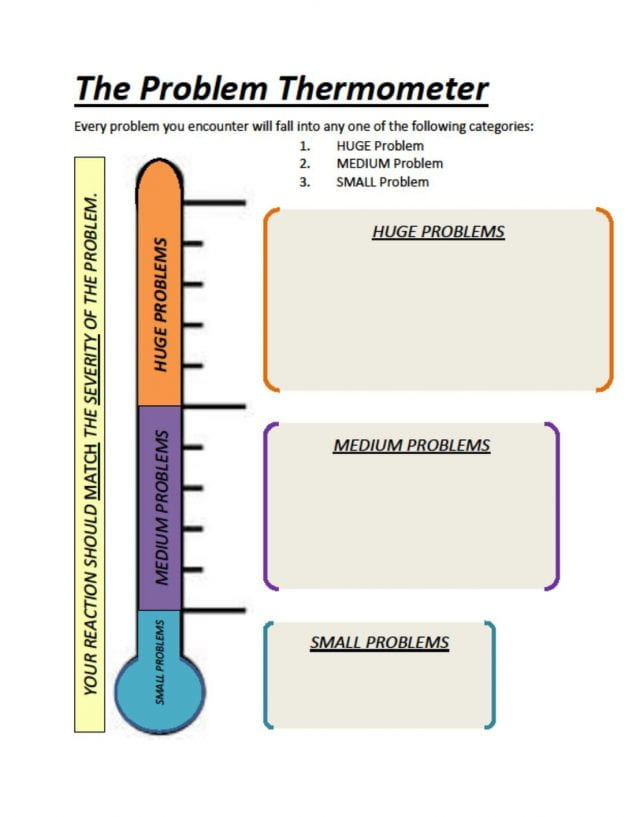 Have you ever had a really BIG reaction to a small problem? For example, maybe your baby brother scribbled crayon all over your journal, and you completely flipped out! Maybe you yelled, cried, slammed your door and screamed into your pillow. You had a really BIG reaction to a problem that felt really big, but when you take a mental step back and really look at it, it actually isn’t that big.
Have you ever had a really BIG reaction to a small problem? For example, maybe your baby brother scribbled crayon all over your journal, and you completely flipped out! Maybe you yelled, cried, slammed your door and screamed into your pillow. You had a really BIG reaction to a problem that felt really big, but when you take a mental step back and really look at it, it actually isn’t that big.
Sometimes it helps to be reminded that the size of our reaction should match the size of the problem. A level 1 size problem, like level 1 in a video game, is easy to solve with a bit of thinking, but a level 5 size problem, like the hardest level in a video game, can be super tricky to solve and you’ll need a few more tools to help you out. In a level 1 size problem, you can probably figure out a simple solution, where with a level 5 size problem, you will probably need another person (a trusted adult or, if you’re older, a friend) to help you solve it. In ALL size problems, you should work at staying calm and thinking about a solution.
Let’s go back to our first problem. You walk in to discover your little brother coloring all over your journal. That can feel really frustrating! When you start to recognize that your feelings are starting to bubble up – try really hard to use your wise brain, your upstairs brain (remember back a few days to upstairs/downstairs brain?) and try to think about the size of this problem. Is it a level 1, 2, 3, 4 or 5? When you force your brain to start thinking instead of letting your feelings take over, you are taking control, and can make better decisions. You can decide the best way to handle this problem – do you need to find someone to help? Can you handle it on your own by using some calming down strategies, talking to your little brother or taking steps to make sure it doesn’t happen again?
It might help to make a chart like this one  for yourself (when you aren’t upset) to help you remember the tips and tricks for recognizing what problems fit into each category, and how you can respond. Feeling frustrated and upset are part of life. Being able to manage your reactions to problems will make you feel more in control and less likely to create big problems out of small one.
for yourself (when you aren’t upset) to help you remember the tips and tricks for recognizing what problems fit into each category, and how you can respond. Feeling frustrated and upset are part of life. Being able to manage your reactions to problems will make you feel more in control and less likely to create big problems out of small one.
Parent Tip: If your child is having really big reactions to smaller problems, it may help to empathize until their “upstairs brain” can take back control. Saying something like, “You are having some really big feelings right now”, and just sitting in that moment with them at first, can help deescalate the situation. They can feel that you get it. Then as they settle down, try to engage their upstairs brain by asking the question, “What size is this problem?” This can help them pause the emotion and start the process of problem solving.